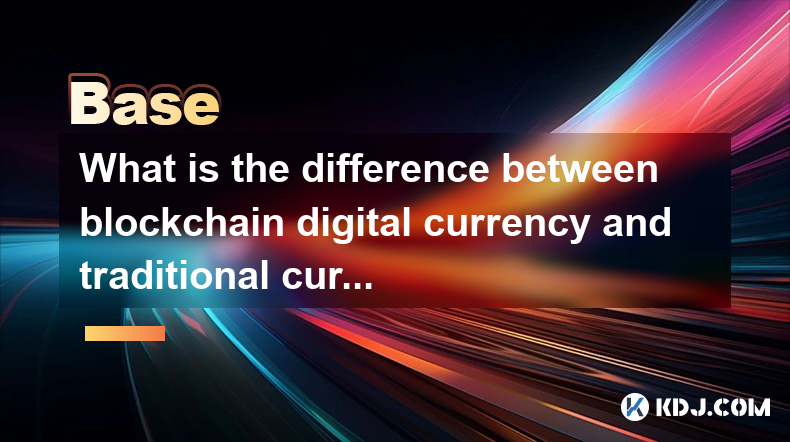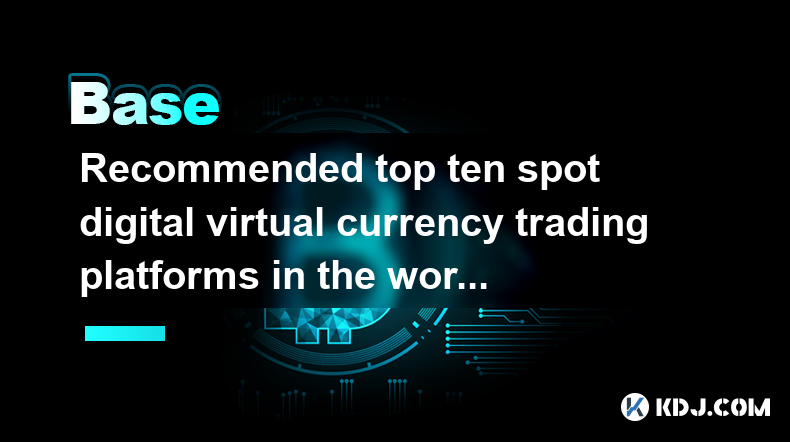-
 Bitcoin
Bitcoin $87,160.3686
2.59% -
 Ethereum
Ethereum $1,577.5291
-0.58% -
 Tether USDt
Tether USDt $1.0000
0.00% -
 XRP
XRP $2.0804
0.22% -
 BNB
BNB $596.3334
0.99% -
 Solana
Solana $136.5658
-0.15% -
 USDC
USDC $1.0000
0.00% -
 Dogecoin
Dogecoin $0.1584
1.77% -
 TRON
TRON $0.2458
-0.32% -
 Cardano
Cardano $0.6208
0.05% -
 Chainlink
Chainlink $13.1006
-1.96% -
 UNUS SED LEO
UNUS SED LEO $9.1412
-1.97% -
 Avalanche
Avalanche $19.9880
2.50% -
 Stellar
Stellar $0.2528
3.56% -
 Shiba Inu
Shiba Inu $0.0...01238
-0.19% -
 Toncoin
Toncoin $2.8930
-3.79% -
 Sui
Sui $2.2031
4.44% -
 Hedera
Hedera $0.1692
1.25% -
 Bitcoin Cash
Bitcoin Cash $343.2002
2.28% -
 Polkadot
Polkadot $3.8296
-1.99% -
 Hyperliquid
Hyperliquid $17.9378
1.39% -
 Litecoin
Litecoin $78.0777
0.75% -
 Dai
Dai $0.9999
0.00% -
 Bitget Token
Bitget Token $4.4322
0.90% -
 Ethena USDe
Ethena USDe $0.9993
0.00% -
 Pi
Pi $0.6347
-0.88% -
 Monero
Monero $214.7110
-0.08% -
 Uniswap
Uniswap $5.2643
-0.22% -
 Pepe
Pepe $0.0...07787
2.99% -
 Aptos
Aptos $4.9970
-0.84%
What is the difference between blockchain digital currency and traditional currency?
Blockchain currencies, unlike centralized traditional currencies, offer decentralized, transparent transactions secured by cryptography, but face volatility and accessibility challenges.
Mar 22, 2025 at 07:56 pm

Key Points:
- Decentralization vs. Centralization: Blockchain digital currencies operate on decentralized networks, unlike traditional currencies managed by central banks.
- Transparency vs. Opacity: Blockchain transactions are publicly recorded and verifiable, while traditional transactions are often private.
- Security vs. Security Risks: Blockchain uses cryptography for enhanced security, but vulnerabilities exist within smart contracts and exchanges. Traditional systems face risks like fraud and counterfeiting.
- Volatility vs. Stability: Blockchain digital currencies are known for price volatility, whereas traditional currencies aim for relative stability.
- Accessibility vs. Accessibility Barriers: Cryptocurrencies offer potential for greater financial inclusion, while traditional systems often have barriers to entry.
What is the difference between blockchain digital currency and traditional currency?
The fundamental difference lies in their underlying architecture and governance. Traditional currencies, like the US dollar or the Euro, are issued and regulated by central banks. These institutions control the money supply, manage interest rates, and oversee the overall financial system. This centralized nature offers stability but can also lead to limitations in accessibility and control.
Blockchain digital currencies, on the other hand, operate on decentralized networks. No single entity controls the currency. Instead, a distributed ledger technology (DLT) called a blockchain records all transactions across numerous computers. This decentralized structure eliminates the need for intermediaries like banks, potentially reducing transaction fees and increasing efficiency.
Transparency is another key differentiator. Blockchain transactions are usually publicly recorded and verifiable on the blockchain. Anyone can view the transaction history (although individual identities might be pseudonymous). This contrasts with traditional financial systems where transactions are generally private and only visible to the involved parties and financial institutions. This transparency enhances accountability but also raises privacy concerns.
Security is paramount for both systems, but the approaches differ. Blockchain uses cryptography to secure transactions and prevent fraud. However, vulnerabilities can still exist, particularly within smart contracts (self-executing contracts coded on the blockchain) and cryptocurrency exchanges. Traditional currencies rely on central banks and various security measures to combat counterfeiting, fraud, and theft. While both systems face risks, the nature and distribution of those risks differ significantly.
A major difference is volatility. The prices of blockchain digital currencies are highly volatile, often fluctuating dramatically in short periods. This is due to factors such as market speculation, regulatory changes, and technological advancements. Traditional currencies, while subject to fluctuations, typically experience far less volatility due to the stabilizing influence of central banks and established economic mechanisms.
Accessibility is another crucial point of divergence. Cryptocurrencies offer the potential for greater financial inclusion, particularly in regions with limited access to traditional banking services. However, navigating the crypto world requires technical understanding and caution due to the risks involved. Traditional currencies, while widely accessible, can present barriers to entry for individuals lacking bank accounts or facing financial exclusion.
The methods of acquiring these currencies also differ substantially. Traditional currencies are primarily obtained through employment, investments, and government benefits. Blockchain digital currencies, however, can be acquired through mining (solving complex cryptographic problems), purchasing on exchanges, or receiving them as payment for goods or services. The methods are more diverse but also involve higher levels of risk and require more technical knowledge.
Furthermore, the regulatory landscape is drastically different. Traditional currencies are heavily regulated by governments and central banks, subject to strict anti-money laundering (AML) and know-your-customer (KYC) regulations. The regulatory environment for blockchain digital currencies is still evolving, with varying approaches across different jurisdictions. This lack of consistent global regulation presents both opportunities and challenges.
The underlying technology driving these currencies also differs significantly. Traditional currencies rely on established financial infrastructure, including banks, payment processors, and central banking systems. Blockchain digital currencies leverage blockchain technology, a distributed ledger that provides transparency, security, and immutability. This technological difference leads to variations in transaction speeds, fees, and overall efficiency.
Finally, the use cases vary. Traditional currencies are used for a vast array of transactions, from everyday purchases to large-scale investments. Blockchain digital currencies are increasingly used for payments, investments, and decentralized finance (DeFi) applications, but their widespread adoption for everyday transactions is still developing.
Frequently Asked Questions:
Q: Are blockchain digital currencies legal? A: The legality of blockchain digital currencies varies widely depending on the jurisdiction. Some countries have embraced them, while others have imposed restrictions or outright bans.
Q: Are blockchain digital currencies safe? A: While blockchain technology offers enhanced security features, the overall safety of digital currencies depends on various factors, including exchange security, individual user practices, and the potential for scams.
Q: How can I buy blockchain digital currency? A: You can purchase blockchain digital currencies on cryptocurrency exchanges, often using traditional fiat currency. Be aware of the risks and only use reputable exchanges.
Q: What are the risks associated with blockchain digital currencies? A: Risks include price volatility, security breaches on exchanges, scams, and regulatory uncertainty. It's crucial to conduct thorough research and understand the risks before investing.
Q: What is the future of blockchain digital currencies? A: The future of blockchain digital currencies is uncertain but holds significant potential. Their widespread adoption will likely depend on technological advancements, regulatory clarity, and increasing public understanding and acceptance.
Disclaimer:info@kdj.com
The information provided is not trading advice. kdj.com does not assume any responsibility for any investments made based on the information provided in this article. Cryptocurrencies are highly volatile and it is highly recommended that you invest with caution after thorough research!
If you believe that the content used on this website infringes your copyright, please contact us immediately (info@kdj.com) and we will delete it promptly.
- Lightchain AI: The Future of Cryptocurrency
- 2025-04-22 05:30:13
- Coinbase Expands XRP Futures Contracts Trading
- 2025-04-22 05:30:13
- Difficulty Spike and Hashrate Drop Lengthen Block Times
- 2025-04-22 05:25:13
- Despite the Harshest Profit Squeeze in Half a Decade, Bitcoin Mining on U.S. Soil is Consolidating and Gathering Momentum
- 2025-04-22 05:25:13
- Bitcoin (BTC) markets ticked higher
- 2025-04-22 05:20:13
- Shiba Inu (SHIB) and Lightchain AI (LCAI) Are Rapidly Gaining Ground, Positioning Themselves as Serious Competitors to Dogecoin.
- 2025-04-22 05:20:13
Related knowledge

What are the formal digital currency trading apps? What are the BTC exchange apps?
Apr 22,2025 at 03:28am
Regular BTC trading app 1. Binance Binance is a world-renowned digital currency trading platform, providing powerful APPs and excellent user experience. Its main features include: Rich trading pairs : Binance supports over 500 cryptocurrencies and thousands of trading pairs, and users can easily find the currency they want to trade. High security : Bina...

Recommended top ten spot digital virtual currency trading platforms in the world in 2025
Apr 21,2025 at 05:15pm
Recommended top ten spot digital virtual currency trading platforms in the world in 2025 1. Binance As the world's premier cryptocurrency trading platform, Binance is known for its extensive trading pairs and efficient trading services. Its features include: High Liquidity : Binance has huge trading volumes, ensuring users can trade at the best pric...

Ranking of top ten virtual currency trading apps in the currency circle (the latest authoritative list in 2025)
Apr 21,2025 at 10:28pm
The top ten virtual currency trading apps in the 2025 cryptocurrency circle are listed as follows: 1. Binance Binance is one of the world's leading cryptocurrency trading platforms, known for its efficient trading system and extensive currency support. Binance's user interface is designed with simplicity and is suitable for beginners and profess...

Introduction to the top ten digital currency trading app platforms in 2025
Apr 22,2025 at 03:49am
Introduction to the top ten digital currency trading app platforms in 2025 1. Binance Binance is one of the world's leading digital currency trading platforms, ranking first with its huge trading volume and extensive user base. Binance provides trading pairs of more than 500 cryptocurrencies, supporting a variety of trading methods such as spot trad...

The latest ranking of the top ten digital virtual currency trading platforms in 2025
Apr 22,2025 at 02:14am
The latest ranking of the top ten digital virtual currency trading platforms in 2025 1. Binance As the world's largest cryptocurrency trading platform, Binance has always maintained its leading position. The platform offers trading pairs in over 500 cryptocurrencies and supports multiple languages and payment methods. Its user-friendly interface i...

Which virtual currency app is better? Top ten cryptocurrency app trading platforms
Apr 22,2025 at 02:35am
Top 10 cryptocurrency trading application platforms recommended 1. Binance Binance is one of the world's leading cryptocurrency trading platforms, and is popular for its extensive currency support and efficient trading systems. Binance provides services including spot trading, futures trading, leveraged trading, etc., which meet the needs of differe...

What are the formal digital currency trading apps? What are the BTC exchange apps?
Apr 22,2025 at 03:28am
Regular BTC trading app 1. Binance Binance is a world-renowned digital currency trading platform, providing powerful APPs and excellent user experience. Its main features include: Rich trading pairs : Binance supports over 500 cryptocurrencies and thousands of trading pairs, and users can easily find the currency they want to trade. High security : Bina...

Recommended top ten spot digital virtual currency trading platforms in the world in 2025
Apr 21,2025 at 05:15pm
Recommended top ten spot digital virtual currency trading platforms in the world in 2025 1. Binance As the world's premier cryptocurrency trading platform, Binance is known for its extensive trading pairs and efficient trading services. Its features include: High Liquidity : Binance has huge trading volumes, ensuring users can trade at the best pric...

Ranking of top ten virtual currency trading apps in the currency circle (the latest authoritative list in 2025)
Apr 21,2025 at 10:28pm
The top ten virtual currency trading apps in the 2025 cryptocurrency circle are listed as follows: 1. Binance Binance is one of the world's leading cryptocurrency trading platforms, known for its efficient trading system and extensive currency support. Binance's user interface is designed with simplicity and is suitable for beginners and profess...

Introduction to the top ten digital currency trading app platforms in 2025
Apr 22,2025 at 03:49am
Introduction to the top ten digital currency trading app platforms in 2025 1. Binance Binance is one of the world's leading digital currency trading platforms, ranking first with its huge trading volume and extensive user base. Binance provides trading pairs of more than 500 cryptocurrencies, supporting a variety of trading methods such as spot trad...

The latest ranking of the top ten digital virtual currency trading platforms in 2025
Apr 22,2025 at 02:14am
The latest ranking of the top ten digital virtual currency trading platforms in 2025 1. Binance As the world's largest cryptocurrency trading platform, Binance has always maintained its leading position. The platform offers trading pairs in over 500 cryptocurrencies and supports multiple languages and payment methods. Its user-friendly interface i...

Which virtual currency app is better? Top ten cryptocurrency app trading platforms
Apr 22,2025 at 02:35am
Top 10 cryptocurrency trading application platforms recommended 1. Binance Binance is one of the world's leading cryptocurrency trading platforms, and is popular for its extensive currency support and efficient trading systems. Binance provides services including spot trading, futures trading, leveraged trading, etc., which meet the needs of differe...
See all articles






















































































